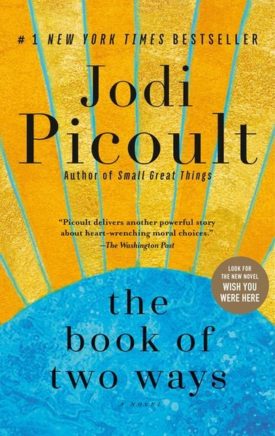 Synopsis:
Synopsis:
Everything changes in a single moment for Dawn Edelstein. She’s on a plane when the flight attendant makes an announcement: prepare for a crash landing. She braces herself as thoughts flash through her mind. The shocking thing is, the thoughts are not of her husband, but a man she last saw fifteen years ago: Wyatt Armstrong.
Miraculously, Dawn survives the crash . . . but so do all the doubts that have suddenly been raised. She has led a good life. Back in Boston, she has a husband, Brian, a beloved daughter, and meaningful work. As a death doula, she helps her clients transition between life and death.
But somewhere in Egypt Wyatt Armstrong is working as an archaeologist, unearthing ancient burial sites. It’s a job Dawn studied to attain. But she was forced to abandon her career path when life suddenly intervened.
Now it seems like fate is offering her second chances. But she’s not as sure about the choice she once made.
After the crash landing, the airline ensures the survivors are evaluated by a doctor and provided transportation wherever they want to go. The obvious option for Dawn is to continue down the path she is on and go home to her family.
The other is to return to the archaeological site she left years before, reconnect with Wyatt and their unresolved history, and maybe even complete her research on The Book of Two Ways — the first known map of the afterlife.
In The Book of Two Ways, Dawn’s two possible futures unspool side by side. So do the secrets and doubts long buried beside them.
And Dawn must finally confront the questions she’s never truly asked. What does a life well-lived look like? When we leave this earth, what do we leave behind? Do we make choices . . . or do our choices make us?
Did you ever wonder who you would have been, if you hadn’t become who you are?
Review:
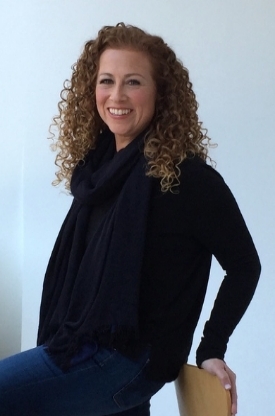
Jodi Picoult is the bestselling author of twenty-seven novels, including A Spark of Light, Change of Heart, Lone Wolf, Keeping Faith, and Nineteen Minutes. She has also penned two young adult novels with her daughter, Samantha Van Leer, which they adapted and developed into a musical entitled Between the Lines. Four of her novels have been adapted into television movies and Her Sister’s Keeper was developed into a film. Small Great Things is also being filmed starring Viola Davis and Julia Roberts. A graduate of Princeton University, Picoult has won numerous awards and resides in New Hampshire.
The inspiration for The Book of Two Ways first struck more than a decade before Picoult actually wrote the book. Her son was majoring in Egyptology at Yale University. She happened to walk by and see him working on a translation of The Book of Two Ways, a road map to the underworld that is more than 4,000 years old. She thought to herself, “Great name for a novel.” She discovered that the text is about choices: “The deceased could take either a land route or a water route to get to the field of offerings, which is the ancient Egyptian version of heaven. No matter which path you took, you wound up where you were supposed to be.”
Picoult came up with the story of a middle-aged woman on a fateful flight. She is a death doula traveling alone while her husband, Brian, is at home in Boston. As the plane is headed for a crash landing, the woman is surprised to find that what flashes before her eyes in what she believes will be her final moments isn’t the life she has built with her husband and child. Rather, she sees the life she originally planned that never came to fruition as an Egyptologist with a different man she left behind fifteen years earlier. “She has to decide: What do I do with this information?” She scuttled the idea when a planned trip to Egypt to research her subject matter had to be canceled.
But she resurrected it some six years later as she conversed with her son’s thesis adviser, telling her she still wanted to write the book. She had always known that she “needed to write about — the construct of time, and love, and life, and death.” She took her up on her offer to travel with Picoult to Egypt, and also set about learning about the work death doulas perform. Picoult is known for her meticulously-researched novels, and The Book of Two Ways is no exception. She immerses readers in Dawn’s world, especially the archaeological digs she is part of in Egypt. She describes in great detail what artifacts are being sought, their significance to scientists and historians, and the beliefs surrounding them. There are two main aspects: historical and religious, and much of what is known about Ancient Egypt has been learned from discoveries made in tombs because the Egyptians prepared extensively to die. The Book of Two Ways was found in some coffins during the historical period known as the Middle Kingdom, usually painted on the bottom. It depicted two roads, one a land route and the other a water route, separated by a lake of fire, through Osiris’s realm of the dead. Both routes led to the Field of Offerings where the dead feasted with Osiris for eternity. But some paths lead nowhere, while others led travelers to demons or circles of fire. The text contained the magic needed to get past the guardians of the gates.
What if the piece of you that’s missing is the critical one?
Relating the story through a first-person narrative from Dawn, her protagonist, readers learn that Dawn wanted to be an Egyptologist after studying Ancient Egypt in fourth grade and falling in love with the culture. She earned a full scholarship to the University of Chicago and fifteen years ago she was a Yale graduate student working in Egypt on her third archaeological dig when she learned that her mother was dying from Stage 4 ovarian cancer. Her brother, Kieran, was only thirteen years old, and their father, a U.S. Army captain, died in a helicopter crash when their mother was carrying Kieran. Unlike their father, their mother did not die alone. Left with responsibility for Kieran, Dawn could not resume her studies at Yale, much less go back to Egypt. Instead, she got a job at the same hospice facility where her mother died, eventually earning a Masters in Social Work and becoming a hospice social worker. A decade later, she became a death doula and for the past five years has run her own business, providing the same services as midwives, but at the other end of the life spectrum. After thirteen years, Dawn believes that she knows a lot about death, but as Picoult’s story opens, she is about to learn that she is wrong. About a lot of things.
While working at the hospice, Dawn met her husband, Brian, and they welcomed a daughter, Meret. Brian, a physics professor, has always been steady, thoughtful, capable, as Dawn describes him. “The spool to my kite, the grounding to my electricity.” But now their marriage is in trouble as a result of Brian’s flirtation with his post-doctoral student, especially when he misses Meret’s birthday party. “He was with her the day of Meret’s birthday. He missed dinner. He came home wrapped in the scent of roses — on his clothes, in his hair, strewn across our marriage.” For Dawn, it was a betrayal. She is also struggling to balance the needs of her business and parent Meret, a fourteen-year-old who, unlike her thin parents, struggles with a weight problem.
After Dawn survives a plane crash, she is overcome with emotion. “How can you even put into words the confession that you made a mistake, that you want to turn back time and try again? How do you say it without hurting the people who have been sitting across from you at the breakfast table for fifteen years, who know your Starbucks order and which side of the bed to leave you at a hotel?” Impulsively, she opts not to return home. Instead, after thinking about Wyatt Armstrong, with whom she was in a serious relationship when she had to abruptly leave Egypt to care for her mother, she heads back to Egypt. Theirs was a classic love story: he was arrogant, self-centered, and immensely talented, and they competed as graduate students, but eventually fell in love. When she arrives, she finds that in the intervening fifteen years, Wyatt as ascended professionally and is now the Director of Egyptology at Yale. Obviously, Wyatt is stunned to see her because Dawn didn’t just leave Egypt. She never explained why she was leaving and did not remain in contact with Wyatt. Still, when he asks why she has come back, she cannot bring herself to tell him that he is the reason she has abruptly returned. She wants to say, “Because you’re here. Because I didn’t get to see how this might have turned out. How I might have turned out. Because if there is a garden of maybes, you are the invasive plant I can’t ever get rid of.” Instead, she merely says, “I don’t know. My life is chaos.” They resume both working side by side and their relationship, even though Dawn is married and Wyatt is engaged to be married to another woman.
The story via dual timelines. In an alternate reality, Dawn survives the plane crash and returns home to work on her marriage, and parent Meret. She takes on a new client, Win, whose son died at the age of sixteen as a result of a drug overdose. She embroils Dawn in her quest to locate her son’s father, a painter with whom she had an affair. And Dawn’s musings about the life she could have chosen are not without guilt. Win reminds her that “women don’t get to have midlife crises where they run off to find themselves. Men leave their wives and children behind every day, and no one is shocked. It’s as if that Y chromosome they hold entitles them to self-discovery, to reinvention.”
The Book of Two Ways moves forward at a steady, but not fast pace which is appropriate for the subject matter. Picoult invites readers to join Dawn, a compellingly flawed character, on her contemplative journey of reflection about the path she did not choose and what might have happened if she had. Her desire for a second chance at being a Egyptologist, and to find out if her relationship with Wyatt could have worked out had she not left him without a word of explanation, is inspired when she is unexpectedly thrust into a crossroads in her life. Brian’s work is in quantum mechanics — the theory that parallel universes can exist and two versions of the same life be lived within them. “Everything that canhappen does happen — in another life,” is how Brian explains it. Has Dawn been living an alternate life within a parallel universe? Is that what one of Picoult’s narratives actually means?
It all makes sense when Picoult seamlessly merges the two narratives. Secrets are revealed that require each character to come to terms with the truth. Dawn is forced to make decisions about what she really wants and how her future will unfold after she has been given an opportunity to discover how a reunion with Wyatt will play out and faced the problems in her marriage head-on. Just like the Egyptians who believed that in the afterlife they would traverse one of the paths depicted in The Book of Two Ways to the Field of Offerings to enjoy an eternal feast.
In the hands of a less skilled writer, The Book of Two Ways could have become bogged down in sentimentality, but Picoult elevates the subject matter, deftly taking Dawn on a journey of self-discovery that feels neither contrived nor heavy-handed. Rather, it is a thoughtful exploration of a middle-aged woman’s re-evaluation of her choices as she works her way through the complexities of her life in an effort to find happiness and fulfillment without hurting those she loves. Picoult always crafts thought-provoking stories that examine and meld several themes into a cohesive whole and The Book of Two Ways showcases her unique ability to do so in a believable, uncontrived, and emotionally resonant fashion. In true Picoult style, the story is related with compassion, sans judgment, and with the expectation that her readers will contemplate the questions she raises and find their own answers. She says that the whole point of the book is “to ask you, ‘Who are you now? And who would you have been if your life had taken many tiny turn? Do we make our choices or do our choices make us?'”
Picoult has stated that she had a different conclusion in mind, but changed it to an ambiguous ending that will frustrate many readers . . . and provides plenty of fodder for arguments at book club meetings.
Excerpt from The Book of Two Ways
Prologue
My calendar is full of dead people.
When my phone alarm chimes, I fish it out from the pocket of my cargo pants. I’ve forgotten, with the time change, to turn off the reminder. I’m still groggy with sleep, but I open the date and read the names: Iris Vale. Eun Ae Kim. Alan Rosenfeldt. Marlon Jensen.
I close my eyes, and do what I do every day at this moment: I remember them.
Iris, who had died tiny and birdlike, had once driven a getaway car for a man she loved who’d robbed a bank. Eun Ae, who had been a doctor in Korea, but couldn’t practice in the United States. Alan had proudly showed me the urn he bought for his cremated remains and then joked, I haven’t tried it on yet. Marlon had changed out all the toilets in his house and put in new flooring and cleaned the gutters; he bought graduation gifts for his two children and hid them away. He took his twelve-year-old daughter to a hotel ballroom and waltzed with her while I filmed it on his phone, so that the day she got married there would be video of her dancing with her father.
At one point, they were my clients. Now, they’re my stories to keep.
Everyone in my row is asleep. I slip my phone back into my pocket and carefully crawl over the woman to my right without disturbing her—air traveler’s yoga—to make my way to the bathroom in the rear of the plane. There I blow my nose and look in the mirror. I’m at the age where that’s a surprise, where I still think I’m going to see a younger woman rather than the one who blinks back at me. Lines fan from the corners of my eyes, like the creases of a familiar map. If I untangle the braid that lies over my left shoulder, these terrible fluorescent lights would pick up those first gray strands in my hair. I’m wearing baggy pants with an elastic waist, like every other sensible nearly-forty woman who knows she’s going to be on a plane for a long-haul flight. I grab a handful of tissues and open the door, intent on heading back to my seat, but the little galley area is packed with flight attendants. They are knotted together like a frown.
They stop talking when I appear. “Ma’am,” one of them says, “could you please take your seat?”
It strikes me that their job isn’t really very different from mine. If you’re on a plane, you’re not where you started, and you’re not where you’re going. You’re caught in between. A flight attendant is the guide who helps you navigate that passage smoothly. As a death doula, I do the same thing, but the journey is from life to death, and at the end, you don’t disembark with two hundred other travelers. You go alone.
I climb back over the sleeping woman in the aisle seat and buckle my seatbelt just as the overhead lights blaze and the cabin comes alive.
“Ladies and gentlemen,” a voice announces, “we have just been informed by the captain that we’re going to have a planned emergency. Please listen to the flight attendants and follow their directions.”
I am frozen. Planned emergency. The oxymoron sticks in my mind.
There is a quick rush of sound—shock rolls through the cabin—but no screams, no loud cries. Even the baby behind me, who shrieked for the first two hours of the flight, is silent. “We’re crashing,” the woman on the aisle whispers. “Oh my God, we’re crashing.”
She must be wrong; there hasn’t even been turbulence. Everything has been normal. But then the flight attendants station themselves in the aisles, performing a strange, staccato ballet of safety movements as instructions are read over the speakers. Fasten your seatbelts. When you hear the word brace, assume the brace position. After the plane comes to a complete stop you’ll hear Release your seatbelts. Get out. Leave everything behind.
Leave everything behind.
For someone who makes a living through death, I haven’t given a lot of thought to my own.
I have heard that when you are about to die, your life flashes before your eyes.
But I do not picture my husband, Brian, his sweater streaked with inevitable chalk dust from the old-school blackboards in his physics lab. Or Meret, as a little girl, asking me to check for monsters under the bed. I do not envision my mother, not like she was at the end or before that, when Kieran and I were young.
Instead, I see him.
As clearly as if it were yesterday, I imagine Wyatt in the middle of the Egyptian desert, the sun beating down on his hat, his neck ringed with dirt from the constant wind, his teeth a flash of lightning. A man who hasn’t been part of my life for fifteen years. A place I left behind.
A dissertation I never finished.
Ancient Egyptians believed that to get to the afterlife, they had to be deemed innocent in the Judgment Hall. Their hearts were weighed against the feather of Ma’at, of truth.
I am not so sure my heart will pass.
The woman to my right is softly praying in Spanish. I fumble for my phone, thinking to turn it on, to send a message, even though I know there is no signal, but I can’t seem to open the button on my pants pocket. A hand catches mine and squeezes.
I look down at our fists, squeezed so tight a secret couldn’t slip between our palms.
Brace, the flight attendants yell. Brace!
As we fall out of the sky, I wonder who will remember me.
~~~~~~~~~~~~~~~~~~~~~~~~~~~~~~~~~~~~~~~~~~~~~~~~~~~~~~~~~~~
Much later I would learn that when a plane crashes and the emergency personnel show up, the flight attendants tell them how many souls were on board. Souls, not people. As if they know our bodies are only passing through for a little while.
I would learn that one of the fuel filters became clogged midflight. That the second filter-clogging light came on in the cockpit forty-five minutes out, and in spite of what the pilots tried, they could not clear it, and they realized they’d have to do a land evacuation. I would learn that the plane came in short of Raleigh-Durham, sticking down in the football field of a private school. As it hit the bleachers with a wing, the plane tipped, rolled, broke into pieces.
Much later I would learn of the family with the baby behind me, whose row of three seats separated from the floor and was thrown free from the aircraft, killing them instantaneously. I would hear about the six others who had been crushed as the metal buckled; the flight attendant who never came out of her coma. I would read the names of the passengers in the last ten rows who hadn’t gotten out of the broken fuselage before it erupted in flame.
I would learn that I was one of thirty-six people who walked away from the crash.
When I step out of the examination room of the hospital we’ve been taken to, I’m dazed. A woman in a uniform is in the hallway, talking to a man with a bandaged arm. She is part of an emergency response team from the airline that has overseen medical checks by physicians, given us clean clothes and food, and flown in frantic family members.
“Ms. Edelstein?” she says, and I blink, until I realize she is talking to me.
A million years ago, I had been Dawn McDowell. I’d published under that name. But my passport and license read Edelstein. Like Brian’s.
In her hand she has a checklist of crash survivors.
She puts a tick next to my name. “Have you been seen by a doctor?”
“Not yet.” I glance back at the examination room.
“Okay. I’m sure you have some questions . . . ?”
That’s an understatement.
Why am I alive, when others aren’t?
Why did I book this particular flight?
What if I’d been detained checking in, and had missed it?
What if I’d made any of a thousand other choices that would have led me far away from this crash?
At that, I think of Brian, and his theory of the multiverse. Somewhere, in a parallel timeline, there is another me at my own funeral.
At the same time, I think—again, always—of Wyatt.
I have to get out of here.
I don’t realize I have said this out loud until the airline representative responds.
“Once we get the doctor’s paperwork, you’re clear to leave. Is someone coming for you, or do you need us to make travel arrangements?”
We, the lucky ones, have been told we can have a plane ticket anywhere we need to go—to our destination, back to where the flight originated, even somewhere else, if necessary. I have already called my husband. Brian offered to come get me, but I told him not to. I didn’t say why.
I clear my throat. “I have to book a flight,” I say.
“Absolutely.” The woman nods. “Where do you need to go?”
Boston, I think. Home. But there’s something about the way she phrases the question: need, instead of want; and another destination rises like steam in my mind.
I open my mouth, and I answer.

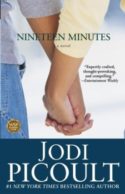
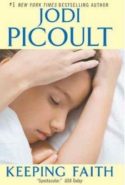
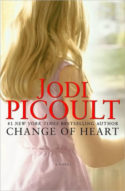
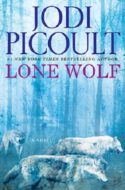
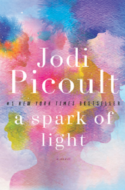
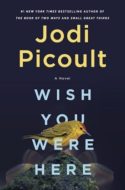


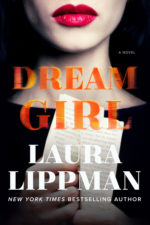

1 Comment
The story sounds intense and emotional and your review does it justice.